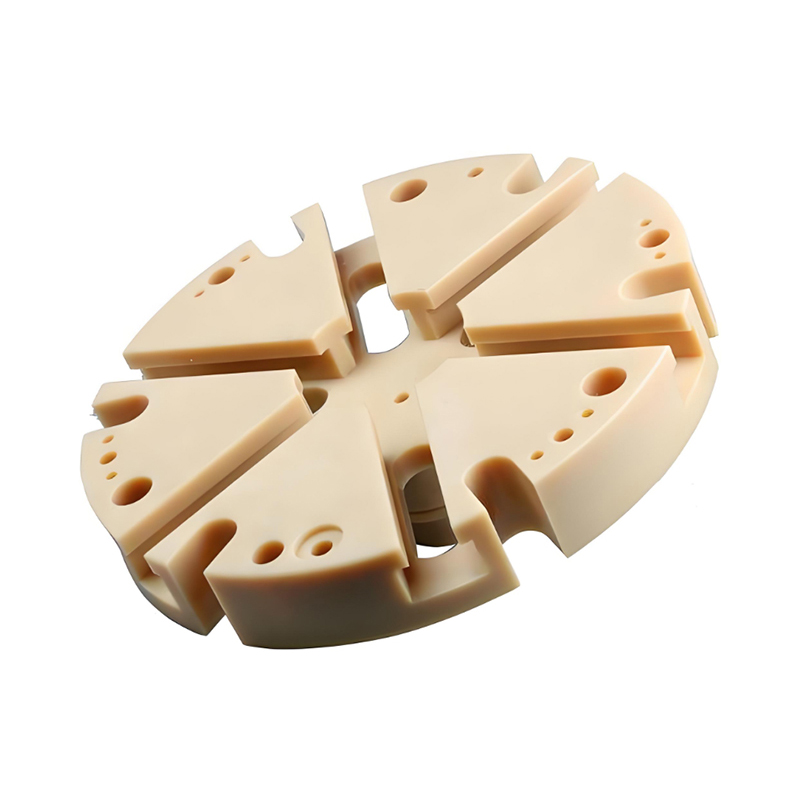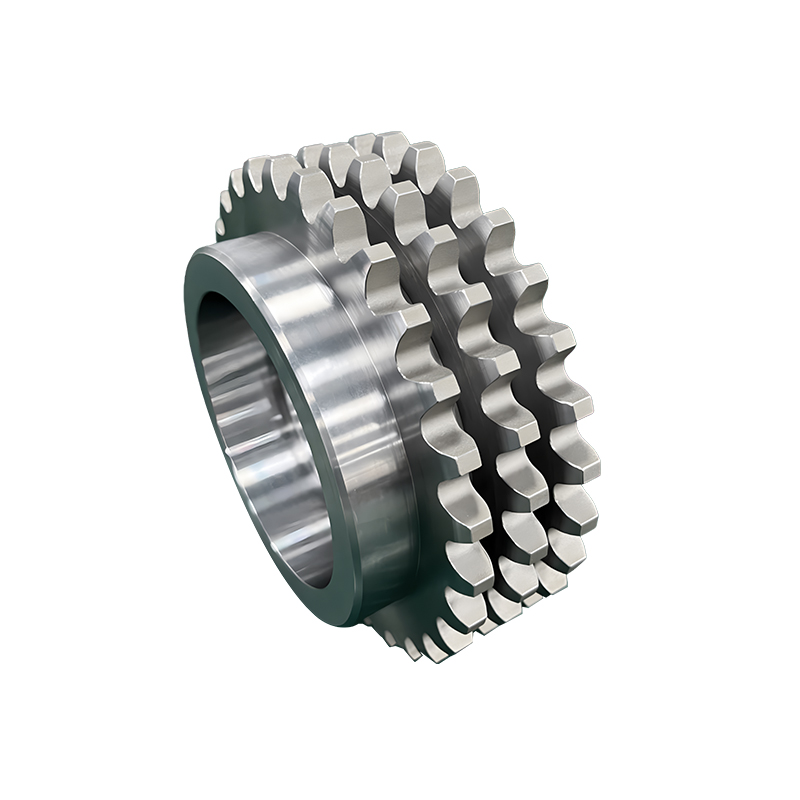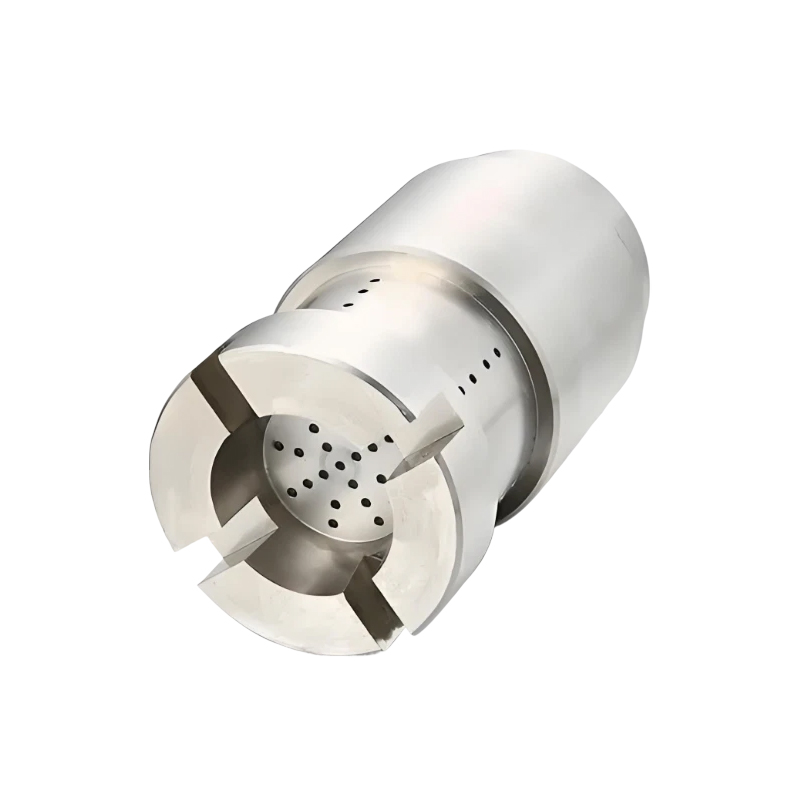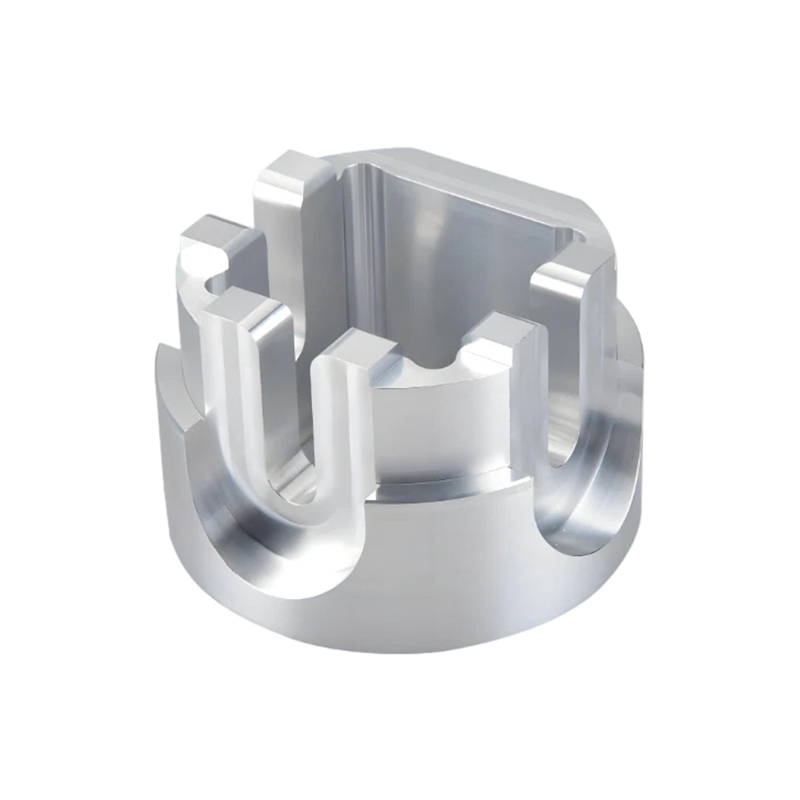What are the advantages of plastic parts in machining compared to metal parts?
Release Time : 2025-05-19
With the advancement of technology and the development of materials science, plastic parts are increasingly used in industrial manufacturing. Although metal parts still occupy an important position, plastic parts have shown advantages that cannot be ignored in many application scenarios due to their unique performance characteristics.
1. High cost-effectiveness
One of the obvious advantages of plastic parts is their cost-effectiveness. First, the price of raw materials is usually lower than that of metal, which directly reduces the production cost. Secondly, plastic molding processes (such as injection molding, blow molding, etc.) can form parts of complex shapes in one go, reducing the need for subsequent processing steps. In contrast, metal parts often require multiple processes for cutting, grinding, etc., which increases time and labor costs. In addition, due to the lower density of plastics, the weight is lighter for the same volume, and the transportation cost is also reduced accordingly.
2. Higher degree of freedom in design
Plastic parts have higher degrees of freedom in design. Modern plastic materials can adjust their physical properties to meet specific functional requirements by adding fillers or changing the molecular structure. For example, by adding glass fiber to enhance the strength of plastics, or using conductive fillers to make plastics conductive. This flexibility allows designers to create more complex and innovative designs without sacrificing functionality. Metal parts, however, are limited by the inherent properties of the material and are difficult to customize to the same degree.
3. Weight reduction
Plastics are generally lighter than most metals, so using plastic parts can significantly reduce the total weight of a product. For industries such as aviation and automobiles, weight reduction means improved fuel efficiency, lower emissions, and improved handling performance. In the automotive industry, for example, body panels made of plastic are not only beautiful and durable, but also effectively reduce the weight of the vehicle, thereby improving the vehicle's power and economy.
4. Strong corrosion resistance
Plastics have natural corrosion resistance and are not easily affected by moisture, acid and alkali substances, and other chemical media. This feature makes plastic parts particularly suitable for chemical equipment, outdoor facilities and other fields, avoiding the problems of rust and oxidation that metal parts may face. No additional anti-corrosion coating is required to maintain good condition for a long time, which saves maintenance costs and extends service life.
5. Convenient processing
Plastic parts are relatively easy and quick to process. On the one hand, plastic materials are easy to cut, drill and weld, and less waste is generated during the processing, which is conducive to keeping the working environment clean; on the other hand, plastic materials cause less wear on tools, reduce the frequency of tool replacement, and improve work efficiency. Especially for mass-produced parts, the rapid prototyping ability of plastic parts is particularly outstanding, which helps to shorten the production cycle and speed up the time to market.
6. Superior insulation performance
Most plastics have good electrical insulation properties, which makes them one of the indispensable materials in the field of electronic appliances. Whether as a shell to protect the internal circuit from external interference or used to manufacture various connectors and sockets, plastics can provide reliable insulation effects. In contrast, although some metals can also achieve similar effects through surface treatment, their cost and technical difficulty are higher than plastics.
7. Good sound insulation and heat insulation performance
Plastic materials are also known for their excellent sound insulation and heat insulation properties. In the construction industry, plastic door and window frames can not only block wind and rain, but also effectively isolate noise transmission; in the home appliance manufacturing industry, plastic shells help maintain the stable operating temperature of internal components and prevent overheating damage. These characteristics have won wide market recognition for plastic parts.
In summary, plastic parts have shown many unique advantages over metal parts in the machining process, including but not limited to cost-effectiveness, design freedom, weight reduction, corrosion resistance, processing convenience, insulation performance, sound insulation and heat insulation performance, etc. Of course, each material has its scope of application and limitations. In practical applications, the most suitable material type should be selected based on comprehensive considerations of specific needs.
1. High cost-effectiveness
One of the obvious advantages of plastic parts is their cost-effectiveness. First, the price of raw materials is usually lower than that of metal, which directly reduces the production cost. Secondly, plastic molding processes (such as injection molding, blow molding, etc.) can form parts of complex shapes in one go, reducing the need for subsequent processing steps. In contrast, metal parts often require multiple processes for cutting, grinding, etc., which increases time and labor costs. In addition, due to the lower density of plastics, the weight is lighter for the same volume, and the transportation cost is also reduced accordingly.
2. Higher degree of freedom in design
Plastic parts have higher degrees of freedom in design. Modern plastic materials can adjust their physical properties to meet specific functional requirements by adding fillers or changing the molecular structure. For example, by adding glass fiber to enhance the strength of plastics, or using conductive fillers to make plastics conductive. This flexibility allows designers to create more complex and innovative designs without sacrificing functionality. Metal parts, however, are limited by the inherent properties of the material and are difficult to customize to the same degree.
3. Weight reduction
Plastics are generally lighter than most metals, so using plastic parts can significantly reduce the total weight of a product. For industries such as aviation and automobiles, weight reduction means improved fuel efficiency, lower emissions, and improved handling performance. In the automotive industry, for example, body panels made of plastic are not only beautiful and durable, but also effectively reduce the weight of the vehicle, thereby improving the vehicle's power and economy.
4. Strong corrosion resistance
Plastics have natural corrosion resistance and are not easily affected by moisture, acid and alkali substances, and other chemical media. This feature makes plastic parts particularly suitable for chemical equipment, outdoor facilities and other fields, avoiding the problems of rust and oxidation that metal parts may face. No additional anti-corrosion coating is required to maintain good condition for a long time, which saves maintenance costs and extends service life.
5. Convenient processing
Plastic parts are relatively easy and quick to process. On the one hand, plastic materials are easy to cut, drill and weld, and less waste is generated during the processing, which is conducive to keeping the working environment clean; on the other hand, plastic materials cause less wear on tools, reduce the frequency of tool replacement, and improve work efficiency. Especially for mass-produced parts, the rapid prototyping ability of plastic parts is particularly outstanding, which helps to shorten the production cycle and speed up the time to market.
6. Superior insulation performance
Most plastics have good electrical insulation properties, which makes them one of the indispensable materials in the field of electronic appliances. Whether as a shell to protect the internal circuit from external interference or used to manufacture various connectors and sockets, plastics can provide reliable insulation effects. In contrast, although some metals can also achieve similar effects through surface treatment, their cost and technical difficulty are higher than plastics.
7. Good sound insulation and heat insulation performance
Plastic materials are also known for their excellent sound insulation and heat insulation properties. In the construction industry, plastic door and window frames can not only block wind and rain, but also effectively isolate noise transmission; in the home appliance manufacturing industry, plastic shells help maintain the stable operating temperature of internal components and prevent overheating damage. These characteristics have won wide market recognition for plastic parts.
In summary, plastic parts have shown many unique advantages over metal parts in the machining process, including but not limited to cost-effectiveness, design freedom, weight reduction, corrosion resistance, processing convenience, insulation performance, sound insulation and heat insulation performance, etc. Of course, each material has its scope of application and limitations. In practical applications, the most suitable material type should be selected based on comprehensive considerations of specific needs.







